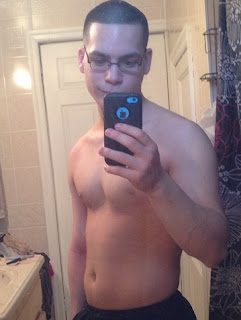 Diff'rent Strokes (1978-86) is one of those iconic 1980s tv series that everyone knew about but no one watched (at least no one I knew watched). Everybody could quote Gary Coleman's incredulous catchphrase, "What you talkin' bout?"
Diff'rent Strokes (1978-86) is one of those iconic 1980s tv series that everyone knew about but no one watched (at least no one I knew watched). Everybody could quote Gary Coleman's incredulous catchphrase, "What you talkin' bout?"The plot was standard "fish out of water": old, rich white guy, Mr. Drummond (Conrad Bain) adpots the two poor African-American kids of his recently deceased housekeeper (hey, Rich White Guy, if you had paid her a living wage, or offered life insurance, maybe her kids wouldn't be poor).
The teenage Willis (Todd Bridges) is suspicious and surely, but the chipmunk-cheeked preteen Arnold (Gary Coleman) is adorable.
The cast was filled out by Drummond's teenage daughter Kimberly (Dana Plato) and current housekeeper Mrs. Garrett (Charlotte Rae). Later there were other housekeepers, Willis's role was minimized, Kimberly was written out altogether, and Drummond married a woman with a cute preteen son (Danny Cooksey) to bond with Arnold.
 Early episodes involved various friends, relatives, classmates, and social service personnel being shocked by the arrangement.
Early episodes involved various friends, relatives, classmates, and social service personnel being shocked by the arrangement. I didn't watch many later episodes. Not enough beefcake, not enough gay subtexts, and it aired either opposite my favorite programs, Taxi and Barney Miller, or during the date-and-outing time of Saturday night.
But I heard about its string of Very Special (that is, very depressing) episodes, apparently meant to impress upon kids the dangers of life in the 1980s:
First Lady Nancy Reagan stops by to give her famous advice on drug prevention: "Just say no."
While hitchhiking, Kimberly and Arnold are kidnapped. Arnold escapes and rushes to fetch the police, arriving just in time to save Kimberly from being raped.
 Danny (shown here with the Dukes of Hazzard) is kidnapped, too, by a grieving mother and father who want him to replace their own dead son. Arnold rushes to the rescue.
Danny (shown here with the Dukes of Hazzard) is kidnapped, too, by a grieving mother and father who want him to replace their own dead son. Arnold rushes to the rescue.The only Very Special Episode I watched was "The Bicycle Man," which aired on February 5th and 12th, 1983.
Arnold and his friend Dudley (Shavar Ross) befriend bicycle shop owner Mr. Horton (Gordon Jump) who cagily flirts with them:
Horton [Giving Arnold a radio for his bike]: I scratch your back, you scratch mine.
Arnold: You give me this present, you can scratch me all over.
After advising him to keep their relationship a secret, Horton plies them with wine and X-rated cartoons, and talks Dudley into posing for shirtless photos. Arnold finally gets uncomfortable and bails, but Dudley stays.
Mr. Drummond and Dudley's Dad finally figure out that something is wrong, and rush to get the police. They arrive just in time to rescue the dazed, "goofy" Dudley, who says that Horton gave him a pill and tried to "touch him."
They then sit around for five minutes discussing what parents should do in such a situation: don't blame the child, call the police rather than confronting the guy yourself, etc.
Willis says: "I never would have guessed that Mr. Horton was...you know...gay." The word is so distasteful to him that he has a hard time saying it.
Detective Simpson corrects him: "He's not, Willis. That's the common fallacy about child molesters. They're not gay, they're only interested in little boys or little girls, not adults."
Arnold: "Look, I'm only eleven years old! Should I be hearing all of this?"
Arnold has kept quiet or cracked jokes through the conversation about child molesting, but when it turns to gay people, he objects.
That's the only time gay people were mentioned in eight seasons. I'm guessing the theme song was talking about something else:
Now the world don't move to the beat of just one drum.
What might be right for you, may not be right for some.





